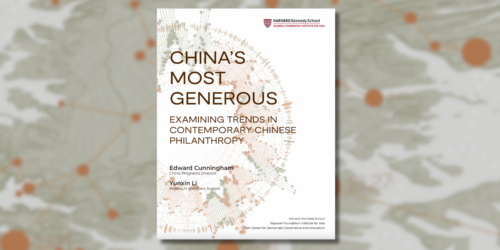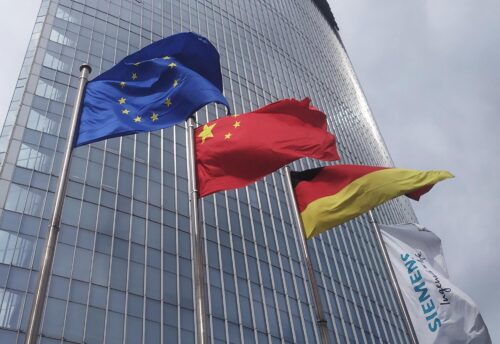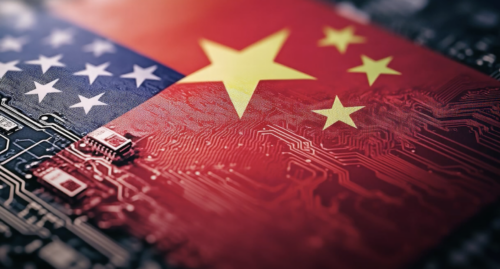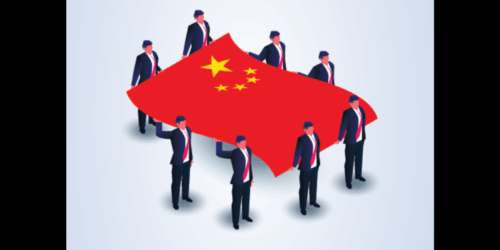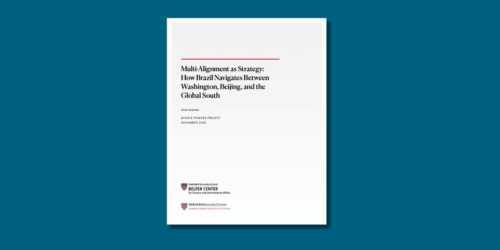A proposed EU ban on products made with forced labor is set to put China’s relations with Europe on increasingly rocky footing. With Beijing’s hopes dashed that Europe could act as a western counterweight to the U.S.’s increasingly forceful posture towards China, we sat down with Philippe Le Corre, an expert on Europe-China relations and a fellow at the Ash Center and the Mossavar-Rahmani Center for Business and Government at HKS to better understand Europe’s evolving posture towards Beijing.
Ash: What impact will the European Union’s proposed policy banning goods made with forced labor have on its relationship with China?
Philippe Le Corre: The ban will affect products coming from various countries around the world, China being one of them. European companies will no longer be able to ignore human rights violations in Xinjiang, Tibet or other regions. Despite signing onto a variety of corporate social responsibility statements, the corporate world has been engaged in China for years without including European values in their strategies. This will no longer be the case if companies do not want to be challenged and targeted by EU and national regulations on forced Labor.
How should this proposed ban be understood in the broader context of evolving Sino-European relations?
We need to go back to the seven year long negotiation process over the Comprehensive Agreement on Investment (CAI) which was eventually signed in December 2020 by China and the EU — but never ratified by the European Parliament due to a set of sanctions imposed in the following months by Beijing on parliamentarians, diplomats and academics. The situation has been at standstill over that document ever since, with Brussels calling on Beijing to sign and ratify.
There have been many signs since spring 2022 that the Chinese leadership has tried to reengage with European leaders but the last EU-China summit (April) was described as a “dialogue of the deaf” by EU High Representative for External Affairs Josep Borrell. Despite the Chinese diplomatic envoy’s visits and attempts to get closer, it has not been a success. We shall see if November and December of this year, following the Communist Party Congress in Beijing, and whether this brings new developments — including a possible visit by German Chancellor Olaf Scholz to China. This would be a major move, as three years after the start of the Covid-19 pandemic, almost no foreign leaders have visited Beijing since early 2020.
How has Beijing’s tacit acceptance of Russia’s invasion of Ukraine exacerbated the strain in relations between the EU and China?
The Russian attack on Ukraine has shocked many European countries and people, in particular Northern, Eastern and Central Europeans. Many were also stunned by the Sino-Russian statement of February 5 on the eve of the 2022 Beijing Winter Olympics. All signs this year have pointed in the direction of Beijing’s supporting Vladimir Putin’s aggressive action. Until now, European leaders have had no choice but to stick to their pro-Ukraine policy line and work closely with the United States and NATO countries. In many ways, this has reinforced the transatlantic partnership – the exact opposite of what China wants to achieve.
Despite the friction, the EU and China continue to remain strongly intertwined economically. Are there signs that EU member states are starting to rethink these close trade ties with China?
Last year, the EU trade deficit with China stood at €472 billion ($522 billion). This figure includes Germany’s (€41 billion), a country which used to run a surplus and has seen a considerable shift in its China approach in recent years. Wandel durch Handel (change through trade), which was Germany’s guiding principle during Angela Merkel’s long tenure as Chancellor, is no longer. Engagement did not help to make China more democratic. Even Merkel herself acknowledged that Germany may have been “too naïve in our approach to some cooperation partnerships.” German businesses have become much more pragmatic with regard to the Chinese market. Car and chemicals manufacturers remain bullish, but many others in the high-tech industries for example have started to raise doubts. At the political level, the EU has been describing China since 2019 as “a partner, an economic competitor and a systemic rival.” Although this delicate balance between values and interests will continue for the years to come, much will depend on China’s attitude following the Party Congress.
While there has been a general shift in sentiment throughout the EU towards China, are there still outliers among individual member states who are open to closer relations with Beijing?
Discrepancies were huge until 2019, but now some unanimity of sorts has been established on major foreign policy issues, including how to deal with Russia and China. One exception has been Hungary’s Prime minister Viktor Orban who has been keen to welcome Chinese investments including in the fields of education, culture, and media. Other countries, such as Greece, have welcomed Chinese investments in ports and other infrastructures, but have still been relatively neutral in the EU (unlike under the previous Greek government which in 2016-2017 had blocked two resolutions criticizing China’s human rights record). Recent holders of the European Council’s rotating presidency, including France and the Czech Republic, have held firm. One can expect Sweden, from January 2023, to act similarly, especially with the ongoing Ukrainian war situation.
